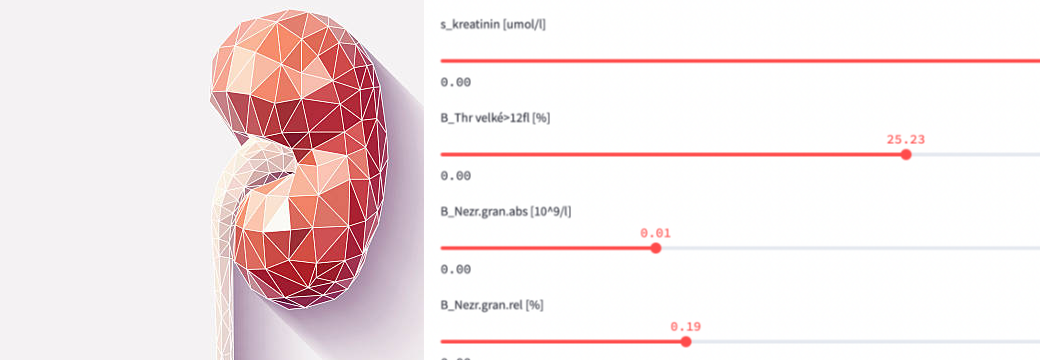
LoopOfHenle
Video
Project / product name: KidneyCheck
Link to the project: https://github.com/bsenst/LoopOfHenle
Team leader: Benjamin Senst
Challenge: 6. Are you kidneying?
Problem: Chronic Kidney disease has a major impact on Quality of Life. Right now damage to the kidney tissue can be diagnosed only once it has occurred which makes reversal impossible. The common lab tests to monitor kidney function change too late in disease progression. Thus early markers to identify worsening function of the kidneys ideally prior to the occurrence of irreversible damage are necessary which will allow intervention in an early stage and prevent progress to terminal kidney failure.
Solution: With machine learning we have extracted the most common features which help us predict CKD patients with 96% recall and precision at least 1.1 years up front, then doctors. This model is trained on tests that are commonly done to patients, years before they were diagnosed with CKD. Using a trained model we also evaluated which markers that are not commonly used help with identifying CKD prone patients. Using our web application we are able to help doctors make better decisions right now.
Impact: Imagine being able to talk to patients about behavioral change and preventive medical options to avoid or delay the onset of kidney failure supported by profound data evidence. This will benefit the individual patient but also allow for planning of future demands for nephrology services and renal replacement therapy capacities in your medical system. Our system also highlights which tests are the most important, therefore cost can be saved utilizing only the most predictive lab tests.
Feasibility & financials: Using our model is cheap and simple. It allows for use of current data formats that are available at IKEM. Using this file format takes into account differences between historical reports and allows the model to be more accurate. Doctors can also quickly see predicted outcomes for specific values of a test.
What is new about your solution?: Predicting disease progression in chronic illnesses using machine learning is cutting edge today. In addition our system deals with real-world clinical data, which is sparse and unstructured. It will ease the data preprocessing and avoid complicated manual preprocessing. It is made to use all possible clinical information without constraints. Our system takes into account the difference of blood/urine markers in time, which significantly boosts its ability to find possible CKD patients.
What you have built at the hackathon - text explanation + code (e.g. GitHub link): Starting with exploratory data analysis, we have found uncommon urine/blood markers. We delivered a list of not so common laboratory examinations. We then prototype machine learning models as a proof of concept. Our model also takes into account differences between each report giving it more time information. In addition model was trained on laboratory values not primarily to detect current kidney disease but to predict upcoming renal failure. Model is also easily explainable.
What you had before the hackathon, please mention open source as well: The initiative LoopOfHenle has formed on the spot bringing together expertise from machine learning, data science and medicine. Regardless of not knowing each other prior to the event the team concentrated on the task and contributed each by his strengths. Apart from that the project work was completely built from scratch in less than 48 hours.
What comes next and what you wish to achieve: Exploring more patient data. The available dataset contains not only these patients but also the broad spectrum representing the patient population. The preprocessing needs more emphasis as is common in unstructured and sparse clinical data. Using model for: train a model to optimize importance of markers based on its cost; provide feature importance explanation for doctor after predicting application;provide suggestions for tests that could help us be more confidential about models predictions.
